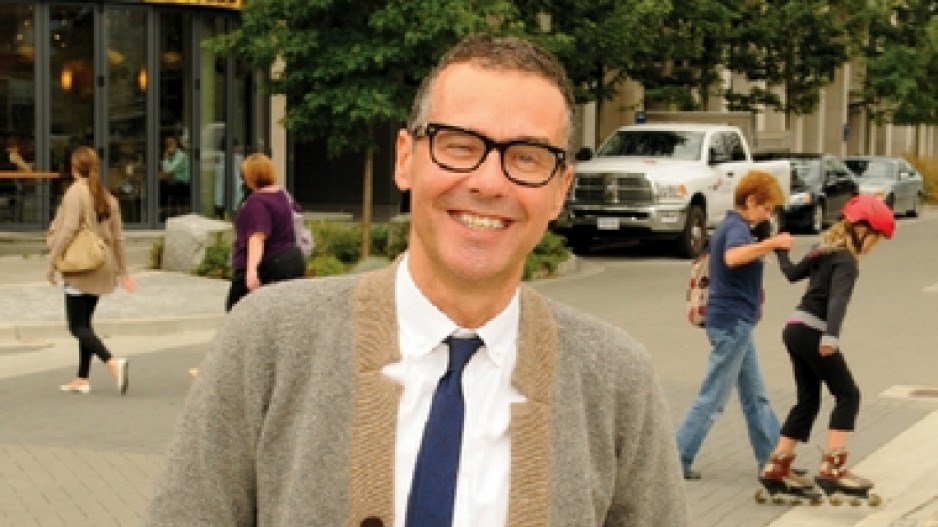Developers who want the City of Vancouver to modify its controversial system of making developers pay substantial fees every time a rezoning provides extra density are at odds with one of the city’s most prolific real estate marketers.
Rennie Marketing Systems owner Bob Rennie told an Urban Development Institute luncheon May 15 that he believes the city is justified in charging for granting additional density.
The city currently takes about 75% of the value of any increase in land value after a rezoning provides for more density. That levy, called a community amenity contribution (CAC), goes to fund social housing, arts and culture space, daycare centres and heritage restoration.
The city calls the contributions “voluntary” but that elicits laughs from developers who say projects don’t proceed if a developer refuses to pay CACs.
Rennie said that if the city did not levy CACs, it would have to increase taxes.
“CACs for the last four years amounted to $339 million,” Rennie said.
“If there were no CACs for the last four years, and the community amenities were still created and the density was still granted, this would result in a tax increase of 6.78% every year for the next ten years, or a one-year tax increase of 54.25%. The choice would be, ‘Let’s not have the amenities,’ and I don’t want to see it pushed so far that something like that goes to a referendum.’”
City plebicites have been in the news recently given Coun. Adriane Carr’s failed motion to have the city hold a plebicite on allowing the Vancouver Aquarium to keep whales and dolphins in captivity. Carr also wants a plebicite on whether Kinder Morgan can increase the number of its tankers traveling through Vancouver's harbour.
Rennie pointed to California as an example of a place where property tax increases are severely limited thanks to state voters, in the 1970s, passing Proposition 13.
Developers have not yet agitated for a referendum on CAC levels but they have grumbled.
“They really want to extract big CACs when they rezone,” Anthem Properties owner Eric Carlson told BIV of the city earlier this year.
“There are huge off-site construction costs such as exterior landscaping. In the old days, you provided asphalt, a curb, sidewalk and the building. Now, there are bioswales [fancy drainage systems that often involve mini-gardens] and little perimeter parks and things like that.”
Carlson is not opposed to the city wanting to improve infrastructure, but he believes it makes development in Vancouver more expensive than in other parts of the Lower Mainland.




